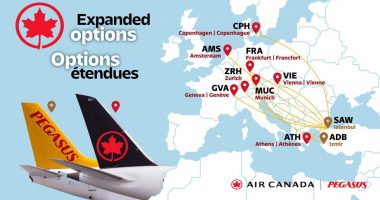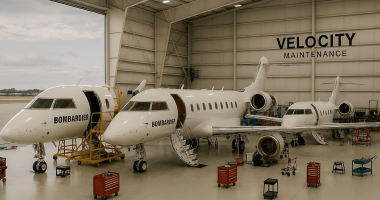- Air Canada (AC) has said it will resume commercial operations using Boeing’s 737 MAX aircraft as of February 1 this year
- The news follows an “Airworthiness Directive” from Transport Canada outlining the required modifications to be made to the aircraft prior to a return to service
- Transport Canada will lift the existing Notice to Airmen (NOTAM) which prohibits the commercial operation of the aircraft in Canadian airspace
- The company will operate select flights from Toronto to Halifax, Montreal, Ottawa, Edmonton and Winnipeg
- Air Canada is currently up 0.7 per cent to C$23.08 per share
Air Canada (AC) has said it will resume commercial operations using Boeing’s 737 MAX aircraft as of February 1 this year.
The news follows an “Airworthiness Directive” from Transport Canada, which outlines the required modifications to be made to the aircraft before returning to service in Canadian airspace.
In addition to the directive, a Notice to Airmen (NOTAM), which prohibits the commercial operation of the aircraft in Canadian airspace, will be lifted on January 20.
Aviation authorities around the world grounded the 737 MAX jets approximately 20 months ago, following two crashes just months apart that killed almost 350 people. A number of flaws in some of the aircraft sensors were shown to have repeatedly forced the nose of the jets down, even as pilots fought to right them.
“Over the last 20 months, Transport Canada’s civil aviation safety experts, by their rigour and thoroughness, have ensured the safety concerns the department had identified have been addressed,” said Omar Alghabra, Canada’s Minister of Transport.
“Canadians and the airline industry can rest assured that Transport Canada has diligently addressed all safety issues prior to permitting this aircraft to return to service in Canadian airspace,” he added.
Once the flights have resumed, Air Canada said it will operate select flights from Toronto to Halifax, Montreal, Ottawa, Edmonton and Winnipeg, with additional routes to be added depending on the fleet’s range and capacity.
“We are very confident the nearly two-year regulatory process undertaken by Transport Canada and other regulators worldwide ensures the utmost safety of the Boeing 737 MAX fleet from nose to tail, and from wing to wing,” said Captain Murray Strom, Vice President of Flight Operations at Air Canada.
“As part of Air Canada’s multi-layered approach to reinforcing and enhancing safety, our internal experts have also worked with independent specialists to conduct assessments of the aircraft and our operating procedures,” he continued.
Air Canada is currently up 0.7 per cent to C$23.08 per share at 2:19pm EST.



